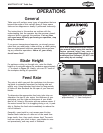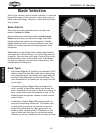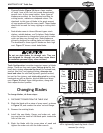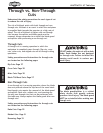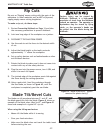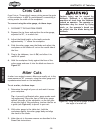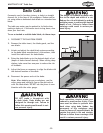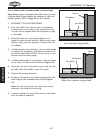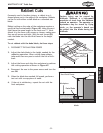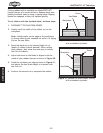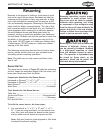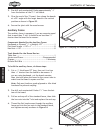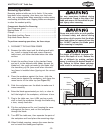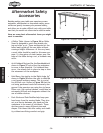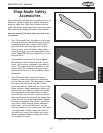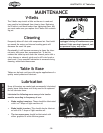
-31-
W1677/W1711 10" Table Saw
OPERATIONS
Rabbet Cuts
Commonly used in furniture joinery, a rabbet is an L-
shaped groove cut in the edge of the workpiece. Rabbets
can be cut with either a dado blade or a standard saw
blade.
Rabbet cutting on the edge of the workpiece requires a
sacrificial fence attachment (
Figure 48). Make the sacri-
ficial fence the same length as the fence and
3
⁄4" thick.
Attach it to the fence with screws or clamps, making sure
they are all secure and tight. With the saw turned ON
,
raise the blade into the sacrificial fence to the height
needed.
To cut rabbets with the dado blade, do these steps:
1. DISCONNECT THE SAW FROM POWER!
2. Adjust the dado blade to the height needed for the
rabbeting operation. When cutting deep rabbets,
take more than one pass to reduce the risk of kick
-
back.
3. Adjust the fence and align the workpiece to perform
the cutting operation as shown in
Figure 49.
4. Reconnect the saw to the power source and turn the
saw ON.
5. When the blade has reached full speed, perform a
test cut with a scrap piece of wood.
6. If the cut is satisfactory, repeat the cut with the
final workpiece.
Figure 48. Sacrificial fence setup.
Serious injury can be caused by
kickback. Kickback is a high-speed
expulsion of stock from the tablesaw
toward an operator. The operator or
bystanders may be struck by flying
stock, or the operator’s hands can
be pulled into the blade during the
kickback.
Figure 49. Rabbet cutting with a dado
blade.



